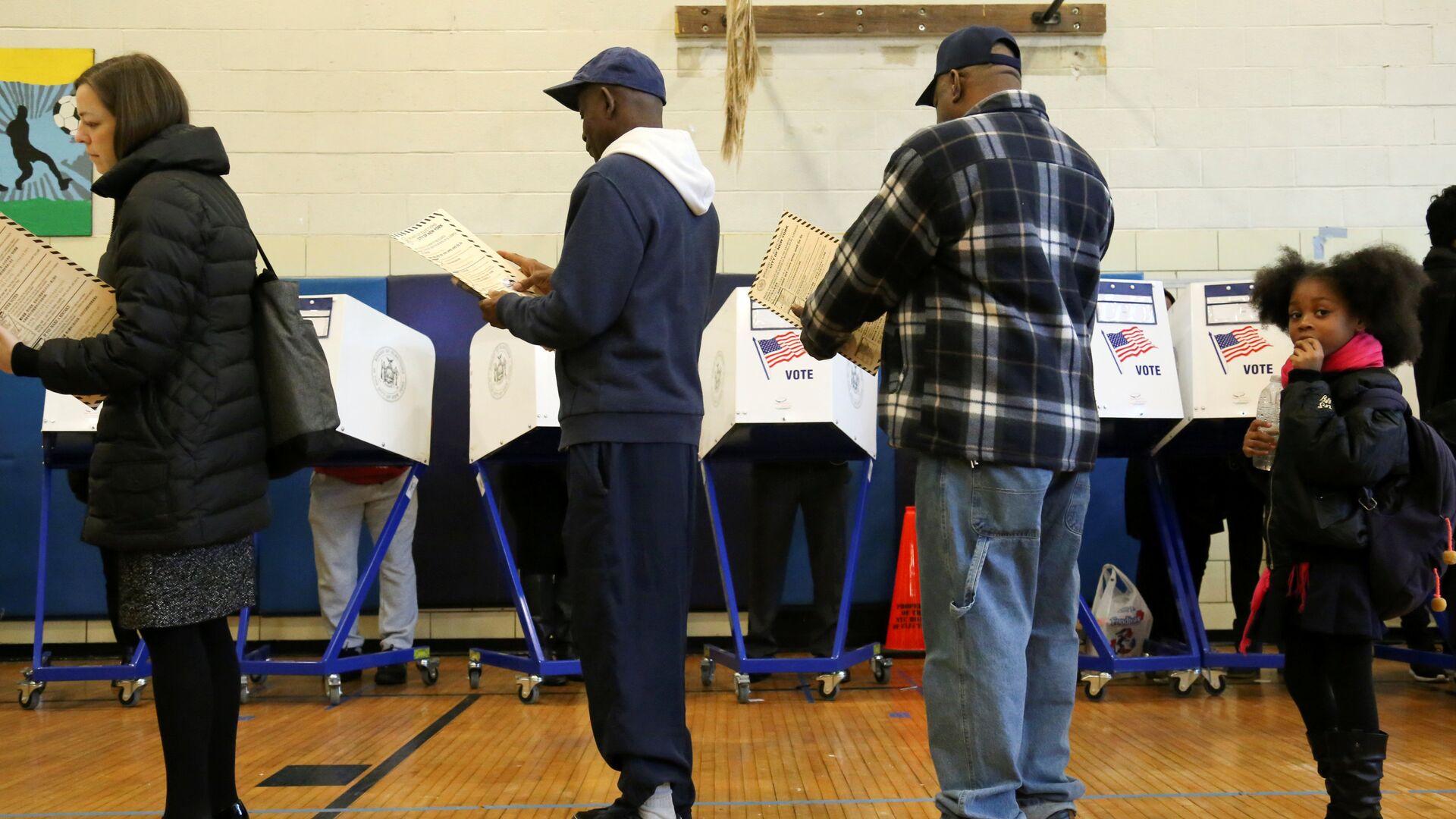https://sputnikglobe.com/20220118/dems-take-pains-to-pass-voting-rights-bill-as-gop-doubles-down-on-id-laws-1092348719.html
Dems Take Pains to Pass Voting Rights Bill as GOP Doubles Down on ID Laws
Dems Take Pains to Pass Voting Rights Bill as GOP Doubles Down on ID Laws
Sputnik International
Democratic senators have brought "Freedom to Vote: John R. Lewis Act" to the upper chamber's floor, while Republican legislatures are continuing to implement ID laws nation-wide.
2022-01-18T18:34+0000
2022-01-18T18:34+0000
2024-03-11T10:59+0000
us senate
chuck schumer
newsfeed
world
us
voting rights act
voter id laws
us midterm elections
2024 us presidential election
us election 2020
https://cdn1.img.sputnikglobe.com/img/104720/53/1047205363_0:183:3500:2152_1920x0_80_0_0_bac7ea55dd71735f55e7127280bdc7c3.jpg
The Democratic Party's recent effort to pass voting rights legislation in the US Senate is all but doomed, according to the New York Times. Firstly, there are no doubts that GOP senators would block it again; secondly, two Democratic senators have refused to deprive their Republican counterparts of the filibuster, which requires 60 votes to override in order to advance most legislation in the chamber. The upper chamber is evenly split and it's virtually impossible for Democrats to get ten extra votes to pass the bill given the GOP's opposition.Republican senators have previously denounced the Dems' voting rights initiatives as "Democratic" and "federal" takeover and argued that loosened ID rules, enhanced voting by mail, automatic and same-day registration would lead to nothing short of massive election fraud.Earlier this month, Senate Majority Leader Chuck Schumer threatened GOP senators with changing the upper chamber's rules and weakening the filibuster. However, Democratic Senators Kyrsten Sinema of Arizona and Joe Manchin of West Virginia announced that they would not support undermining the filibuster to pass legislation no matter what.To avoid an initial filibuster and bring the Freedom to Vote Act and the John Lewis Voting Rights Advancement Act directly to the Senate floor and avoid an initial filibuster the Dems resorted to an unusual manoeuvre. They transformed a bipartisan NASA leasing bill HR 5746, which already passed the House and Senate and was returned to the lower chamber with a couple of amendments, into voting rights legislation called "Freedom to Vote: John R. Lewis Act." According to SpaceNews, the move "effectively sacrificed the NASA portions of the bill."Rep. Don Beyer (D-Va.), chair of the House Science Committee’s space subcommittee, who introduced the original version of HR 5746, reconciled with the changes announcing that he "would be honoured to make this unexpected contribution to the cause of protecting our democracy."Lucas lamented the fact that the Dems have killed the bipartisan efforts to extend NASA’s authority to "lease out underutilised property and save taxpayer money" by changing initial legislation.The new "Freedom to Vote: John R. Lewis Act" dubbed by the GOP as "Fake NASA Bill" was passed in the House on 13 January by 220 to 203 votes on strict party lines.GOP Continue to Implement ID Laws Across NationWhile the Dems are trying to nationalise their version of election rules, Republicans are racing against the clock to strengthen ID laws across the country. So-called "election integrity reforms" gained steam in GOP-controlled states following the disputed 2020 presidential election which is believed to be rigged by a whopping two-thirds of Republicans, according to various polls. According to New York University's Brennan Center for Justice, 19 states passed 33 voting laws bolstering ID rules.The Heritage Foundation, a US conservative think tank based in Washington, DC published an Election Integrity Scorecard of 50 states and the District of Columbia on their election laws earlier this month. The chart focuses on US states' voter ID implementation; the accuracy of voter registration lists; absentee ballot management; vote harvesting restrictions; access of poll watchers; verification of citizenship; identification for voter assistance; vote counting practices; election litigation procedures; restriction of same-day registration; restriction of automatic registration; restriction of private funding of election officials or government agencies.The top five of the think tank's scorecard includes Georgia, Alabama, Tennessee, Arkansas, and Florida; while Texas is ranked sixth. The five states with the lowest scores in terms of election integrity are Hawaii, Nevada, California, Oregon, and Vermont.Despite the Arizona state Senate taking efforts to improve voting integrity and auditing the 2020 election in Maricopa County, the Grand Canyon state still has significant room for improvement regarding voter ID implementation and the accuracy of voter registration lists," remarks Just the News, commenting on the Heritage Foundation's chart. Moreover, even though Georgia – which enacted its election integrity bill in March 2021 – is ranked No. 1, Secretary of State Brad Raffensperger told the John Solomon Reports podcast in January that he's considering closing a loophole allowing non-citizen voting.In a preamble to its scorecard, the Heritage Foundation emphasises the necessity to defend the right to vote and cites the US Supreme Court as stating in 2008 that "flagrant examples of [election] fraud" "demonstrate… that it could affect the outcome of a close election."In 2012 a Pew Research survey examining the states' voter registration systems found that: approximately 24 million voter registrations were either no longer valid or significantly inaccurate; over 1.8 million deceased individuals were listed as voters; roughly 2.75 million individuals were registered in more than one state. In 2017, the Government Accountability Institute (GAI) found that thousands of votes cast in the 2016 election were illegal duplicate votes. In 2020, the Public Interest Legal Foundation (PILF) released a report examining the US voting system, which was eloquently titled "Critical Condition: American Voter Rolls Filled with Errors, Dead Voters, and Duplicate Registrations."Americans conservatives are trying to make case for the necessity to tighten election rules, which comes in direct contradiction with the Democratic Party's recent effort to expand the nation's voting rights. Meanwhile, US trust in elections is declining, according to the latest Pew Research study and the ABC/Ipsos poll. Just 20 percent of Americans say that they are "very confident" in US election integrity.
https://sputnikglobe.com/20220112/partisan-fight-intensifies-as-voting-rights-bill-in-hot-water-in-us-senate-yetagain-1092209922.html
https://sputnikglobe.com/20220108/its-now-or-never-whats-behind-dems-push-for-changing-senate-rules--passing-voting-rights-bills-1092109670.html
https://sputnikglobe.com/20220103/texas-2020-election-audit-found-about-12000-potential-non-citizens-suspected-of-registering-to-vote-1091998554.html
https://sputnikglobe.com/20201122/politburo-are-dems-striving-to-win-it-all--turn-us-political-landscape-into-one-party-system-1081242712.html
https://sputnikglobe.com/20211013/arizona-audit-how-partisan-divisions-upend-us-ability-to-sell-its-image-as-city-on-hill-to-world-1089900845.html
Sputnik International
feedback@sputniknews.com
+74956456601
MIA „Rosiya Segodnya“
2022
News
en_EN
Sputnik International
feedback@sputniknews.com
+74956456601
MIA „Rosiya Segodnya“
Sputnik International
feedback@sputniknews.com
+74956456601
MIA „Rosiya Segodnya“
freedom to vote: john r. lewis act, voting rights bill, election integrity, declining trust in election integrity, disputed 2020 elections, gop id laws, filibuster
freedom to vote: john r. lewis act, voting rights bill, election integrity, declining trust in election integrity, disputed 2020 elections, gop id laws, filibuster
Dems Take Pains to Pass Voting Rights Bill as GOP Doubles Down on ID Laws
18:34 GMT 18.01.2022 (Updated: 10:59 GMT 11.03.2024) The US Senate will debate the Democratic-sponsored legislation that combines two voting rights bills – the Freedom to Vote Act and the John Lewis Voting Rights Advancement Act – starting from 18 January. If the Dems find a way to pass the legislation, it would upend the ID laws implementation by GOP-controlled states nationwide.
The Democratic Party's recent
effort to pass voting rights legislation in the US Senate is all but doomed,
according to the New York Times.
Firstly, there are no doubts that GOP senators would block it again;
secondly, two Democratic senators have refused to deprive their Republican counterparts of the filibuster, which requires 60 votes to override in order to advance most legislation in the chamber. The upper chamber is evenly split and it's virtually impossible for Democrats to get ten extra votes to pass the bill given the GOP's opposition.
Republican senators have previously denounced the Dems' voting rights initiatives as "Democratic" and "federal" takeover and argued that loosened ID rules, enhanced voting by mail, automatic and same-day registration would lead to nothing short of massive election fraud.
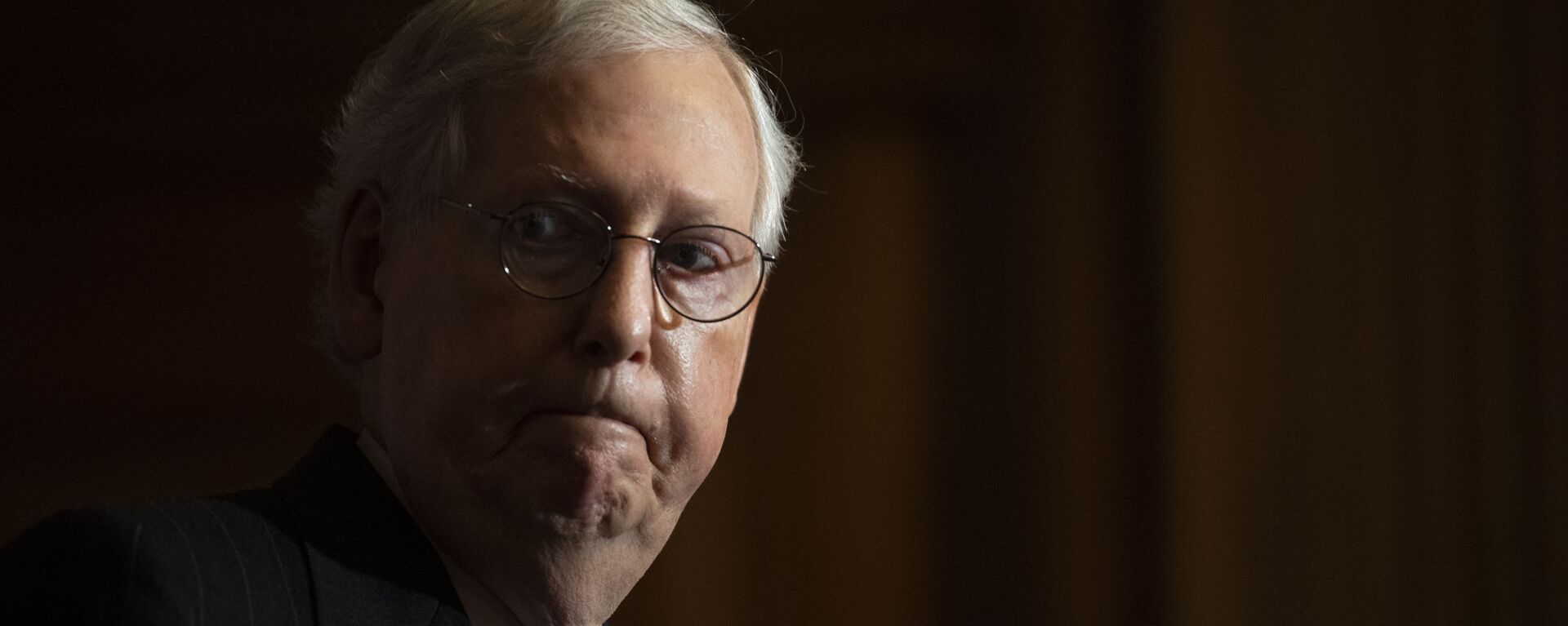
12 January 2022, 16:44 GMT
Earlier this month, Senate Majority Leader Chuck Schumer
threatened GOP senators with changing the upper chamber's rules and weakening the filibuster. However, Democratic Senators Kyrsten Sinema of Arizona and Joe Manchin of West Virginia announced that they would not support undermining the filibuster to pass legislation no matter what.
To avoid an initial filibuster and bring the Freedom to Vote Act and the John Lewis Voting Rights Advancement Act directly to the Senate floor and avoid an initial filibuster the Dems resorted to an unusual manoeuvre. They transformed a bipartisan NASA leasing bill HR 5746, which already passed the House and Senate and was returned to the lower chamber with a couple of amendments, into voting rights legislation called "Freedom to Vote: John R. Lewis Act."
According to SpaceNews, the move "effectively sacrificed the NASA portions of the bill."
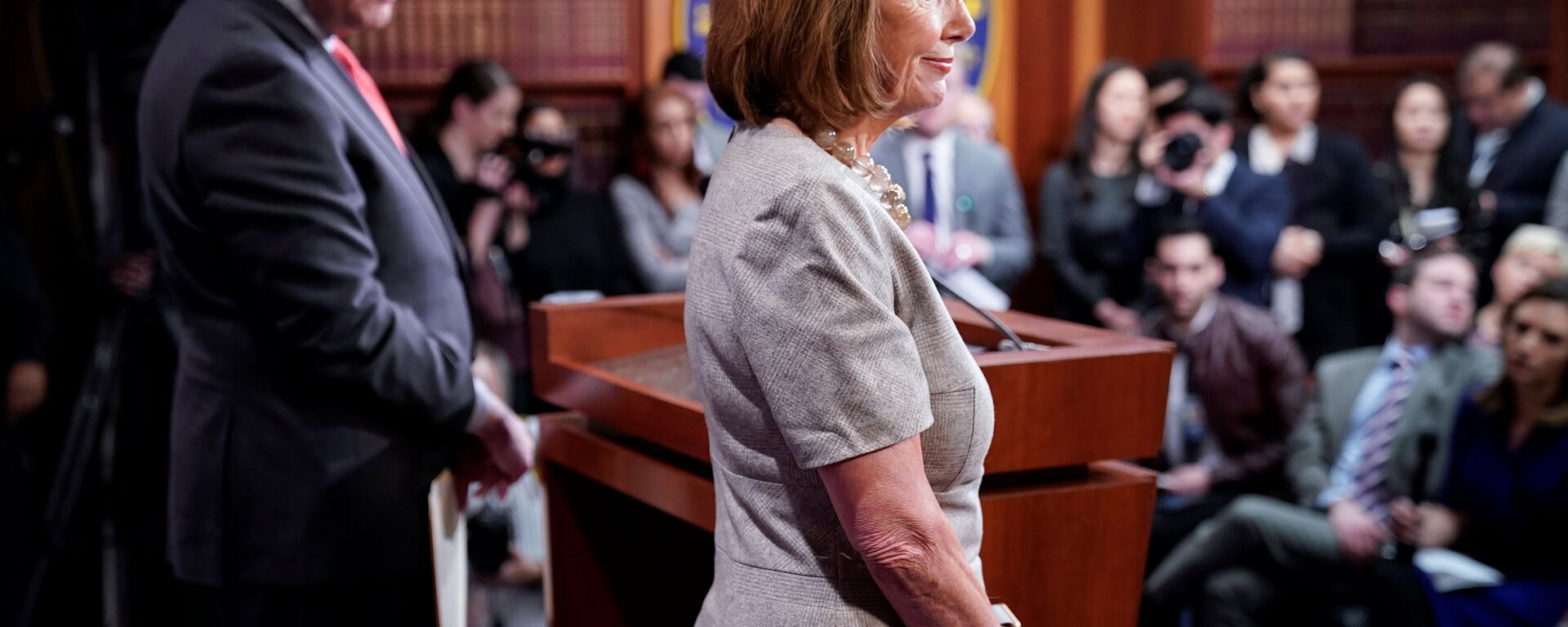
8 January 2022, 10:41 GMT
Rep. Don Beyer (D-Va.), chair of the House Science Committee’s space subcommittee, who introduced the original version of HR 5746, reconciled with the changes announcing that he "would be honoured to make this unexpected contribution to the cause of protecting our democracy."
Republican lawmakers subjected the Democratic Party's move to harsh criticism: "The majority has taken a practical, bipartisan bill and gutted it, inserting 735 pages of unrelated legislation and forcing the House to vote on it barely 12 hours after the text was released," said Rep. Frank Lucas (R-Okla.), ranking member of the House Science Committee, in an official statement.
Lucas lamented the fact that the Dems have killed the bipartisan efforts to extend NASA’s authority to "lease out underutilised property and save taxpayer money" by changing initial legislation.
The new "Freedom to Vote: John R. Lewis Act" dubbed by the GOP as "Fake NASA Bill" was passed in the House on 13 January by 220 to 203 votes on strict party lines.
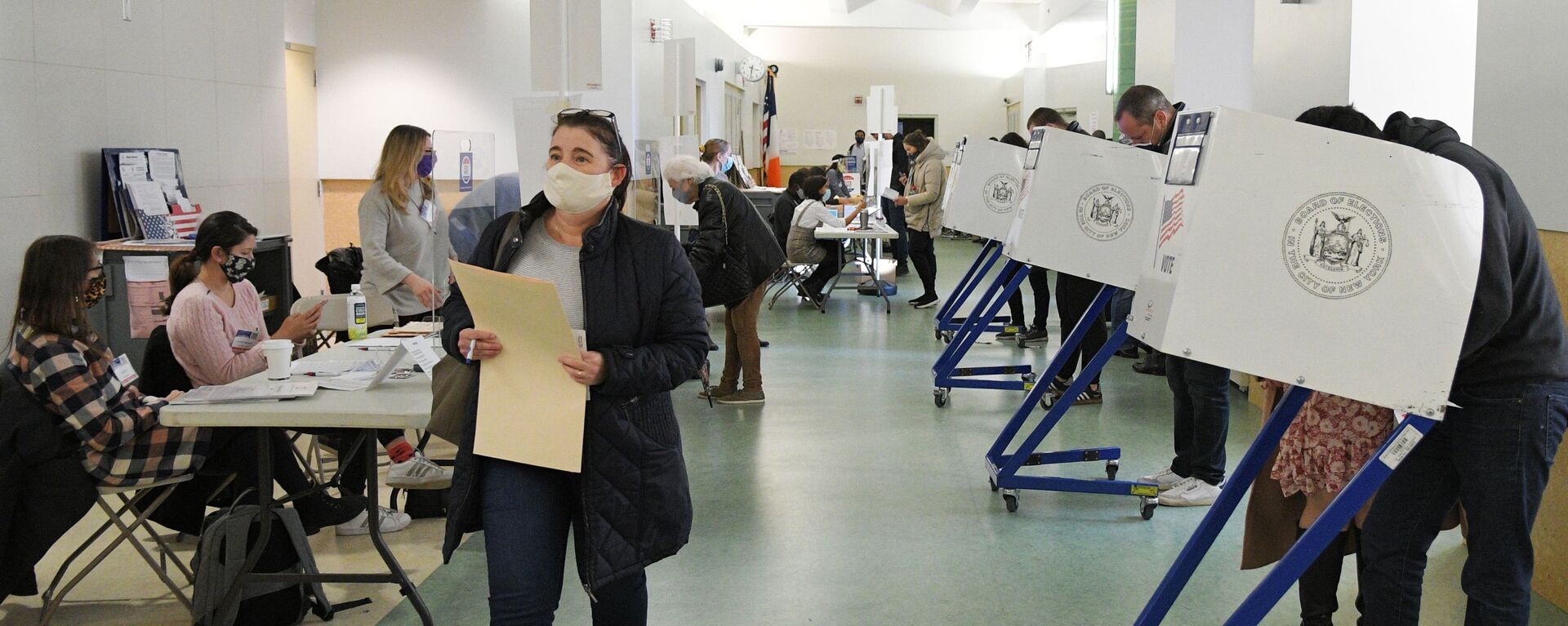
3 January 2022, 16:02 GMT
GOP Continue to Implement ID Laws Across Nation
While the Dems are trying to nationalise their version of election rules, Republicans are racing against the clock to strengthen ID laws across the country. So-called "election integrity reforms" gained steam in GOP-controlled states following the disputed 2020 presidential election which is believed to be rigged by a whopping two-thirds of Republicans, according to various polls. According to New York University's Brennan Center for Justice, 19 states passed 33 voting laws bolstering ID rules.
The Heritage Foundation, a US conservative think tank based in Washington, DC
published an Election Integrity Scorecard of 50 states and the District of Columbia on their election laws earlier this month. The
chart focuses on US states' voter ID implementation; the accuracy of voter registration lists; absentee ballot management; vote harvesting restrictions; access of poll watchers; verification of citizenship; identification for voter assistance; vote counting practices; election litigation procedures; restriction of same-day registration; restriction of automatic registration; restriction of private funding of election officials or government agencies.
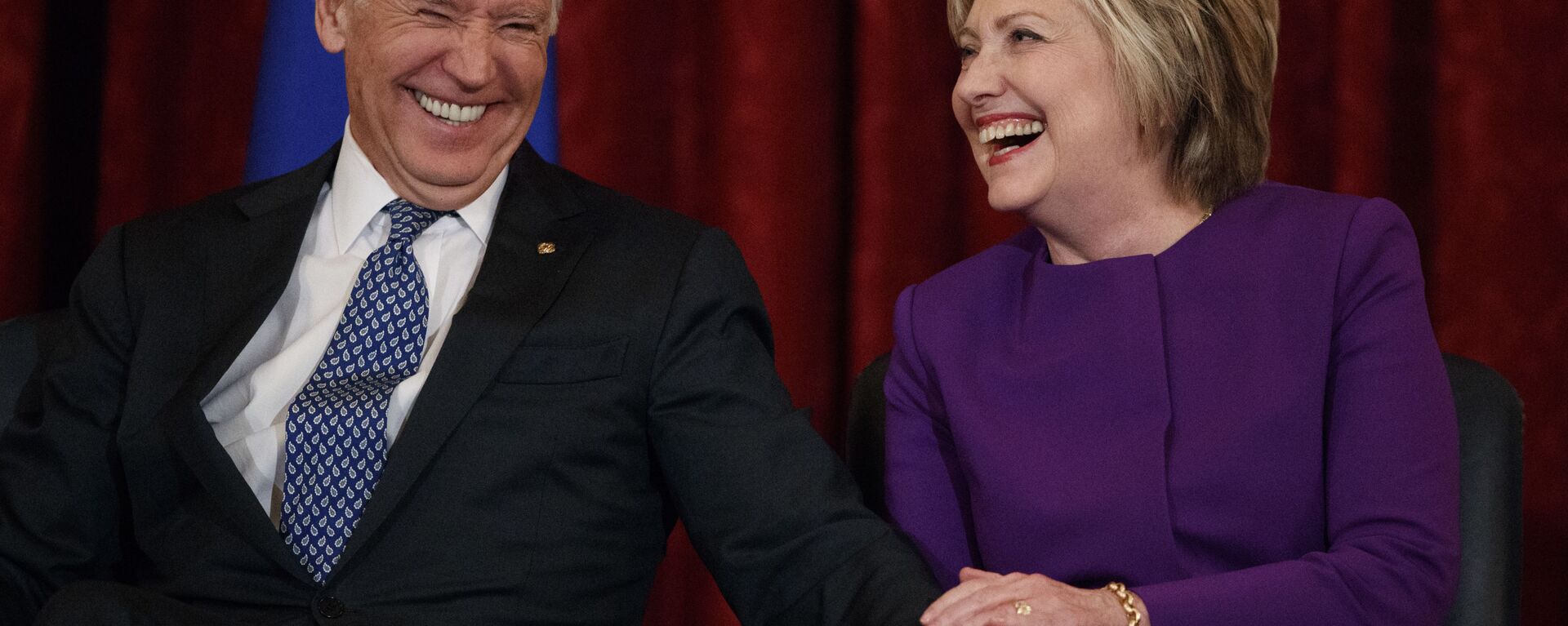
22 November 2020, 15:00 GMT
The top five of the think tank's scorecard includes Georgia, Alabama, Tennessee, Arkansas, and Florida; while Texas is ranked sixth. The five states with the lowest scores in terms of election integrity are Hawaii, Nevada, California, Oregon, and Vermont.
Despite the Arizona state Senate taking efforts to improve voting integrity and auditing the 2020 election in Maricopa County, the Grand Canyon state still has significant room for improvement regarding voter ID implementation and the accuracy of voter registration lists," remarks Just the News, commenting on the Heritage Foundation's chart. Moreover, even though Georgia – which enacted its election integrity bill in March 2021 – is ranked No. 1, Secretary of State Brad Raffensperger told the John Solomon Reports podcast in January that he's considering closing a loophole allowing non-citizen voting.
In a
preamble to its scorecard, the Heritage Foundation emphasises the necessity to defend the right to vote and cites the US Supreme Court as
stating in 2008 that "flagrant examples of [election] fraud" "demonstrate… that it could affect the outcome of a close election."
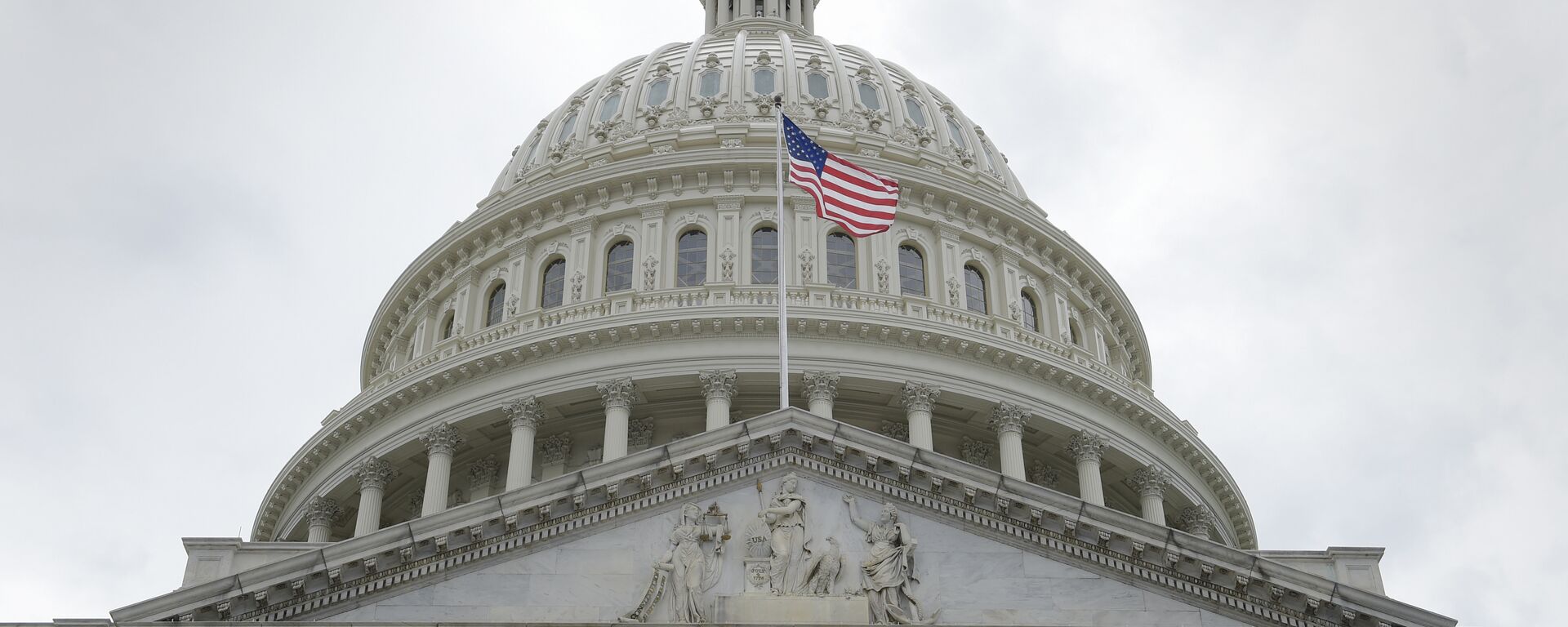
13 October 2021, 18:59 GMT
In 2012 a Pew Research
survey examining the states' voter registration systems found that: approximately 24 million voter registrations were either no longer valid or significantly inaccurate; over 1.8 million deceased individuals were listed as voters; roughly 2.75 million individuals were registered in more than one state. In 2017, the Government Accountability Institute (GAI)
found that thousands of votes cast in the 2016 election were illegal duplicate votes. In 2020, the Public Interest Legal Foundation (PILF)
released a report examining the US voting system, which was eloquently titled "Critical Condition: American Voter Rolls Filled with Errors, Dead Voters, and Duplicate Registrations."
Americans conservatives are trying to make case for the necessity to tighten election rules, which comes in direct contradiction with the Democratic Party's recent effort to expand the nation's voting rights. Meanwhile, US trust in elections is declining, according to the latest Pew Research
study and the ABC/Ipsos
poll. Just 20 percent of Americans say that they are "very confident" in US election integrity.
